Marco (Bully Records)
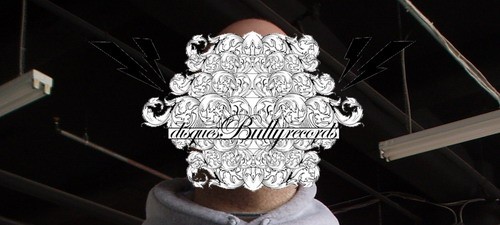
Hip-Hop Core : Please introduce yourself, tell us about where you come from and about your first steps in the wonderful world of hip hop...
Marco: I'm Marco, owner of Bully Records. Grew up in the Montreal area and I was introduced to hip hop by my older brother who was into Public Enemy. English is my second language so for the first few years, I would focus on the beats more than the rhymes. Might be one of the reasons why I release (mostly) instrumental music.
HHC: Tell us about your background, how did you start your shop, then Bully... What were your motivations?
M: About 5 years ago, 6-7 years ago, I used to spend my time and money at Disquivel, which is a Montreal record store. Back then, it was a pretty popular digging spot. One day, they needed someone to fill in for a day for the person in charge of hip hop and electronic music and they asked me (even though the owner didn't really want me working there because of my stutter). I guess I did a good job because they asked me to come back once a week. After some months, I ended up working there seven days a week and handling much of the buying of new releases. At the end of 2002, I thought of releasing a record with some people I knew (Sixtoo & Simahlak) and then, projects started coming up and soon enough, I had a label going.
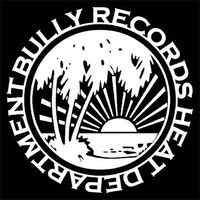 HHC: What's the editorial line of the label? Is there a particular 'Bully sound' according to you?
HHC: What's the editorial line of the label? Is there a particular 'Bully sound' according to you?
M: The only editorial line is to release music that reflects my personal taste. I don't think that, especially over the past year or so, our releases have had a specific sound to it.
HHC: I believe that the label is co-runned by Sixtoo, right? How did you meet him? What does he really do over at Bully?
M: I met him at the store about a year before I started Bully and we started trading records. He's been involved with Bully since the first release as a graphic designer and mastering engineer.
HHC: What about the connections with the members of the roster : p-love, controller 7, matt kelly, elektro4, etc.. Did they send you demo tapes? Are you looking for new artists or people that woudn't be from Montreal?
M: Most of the people involved with Bully is friends of friends. Only two people got in by way of demos. Even though Bully is a Montreal-based label, only about 3-4 of the artists on the label are from here. Most of them live in the US.
HHC: So the label's doing well now, don't you have the temptation of change your politics of limited 45, doing reeditions, more pressing?
M: No. Even if the label was making a lot of money (which it isn't), I'd still be releasing limited 45. None of the CD releases I did were limited.
HHC: How did the connection with Ninja Tune happened for the Lunch Money Singles compilation? Was it a good experience? Will you do more collaborations?
M: Before I released the compilation, Jeff (who runs Ninja Tune in North America) emailed me offering to help out with the distribution of it. I've known them before I started Bully because of the store. Whenever their artists were in town, they would come and buy records from us. Ever since then, they handled the distribution of the CD's that aren't limited edition. Our mailorder is also done through their site…
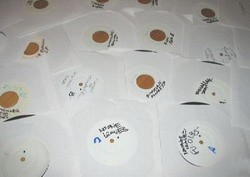 HHC: Is the label a full-time job, or do you have other occupations?
HHC: Is the label a full-time job, or do you have other occupations?
M: For the first two years of Bully, I worked at the store. Then in December 2004, it shut down and I began doing Bully full time. Then about 6 months ago, Ninja Tune asked me if I could take over the mailorder for them. I was already spending some time at the office because of the work I did with them so I figure they thought they might as well give me a job. So, instead of setting up a shop on the Bully site, I do it all on theirs.
HHC: How many people are working for Bully? How is the label organised?
M: Apart from Sixtoo, there isn't any other employees. I only work at Ninja Tune about 2 hours a day so the rest of the time is spent working on Bully. So from 9 in the morning until 1am, it's pretty much work non-stop. I can't really afford employees but I don't mind the workload. It's something I like to do.
HHC: Working in the music business for an independent label, being faced with the reality of it, did it change your vision of this business? What's the most important lesson you learned since you've been running Bully?
M: Let's just put it this way. If you were to apply the music business model on any other type of business, you'd be laughed at and bankrupt. It's definitely the most frustrating thing I've ever done. But it has some good days.
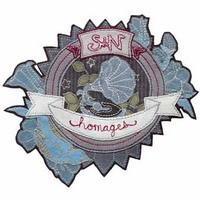 HHC: Do you feel concerned about the free downloading music problem?
HHC: Do you feel concerned about the free downloading music problem?
M: I try not to think too much about it. Of course, when you spend all this time and money releasing records, it's frustrating to see someone just rip it and send it across the internet. But I'm not gonna start telling someone he's a thief because of what they did. The only thing I'll argue is when people diminish the work that indie labels do. People need to understand that a small label is way different than a major. Same goes for an artist that sells a couple thousand copies and one that sells millions.
HHC: You're working with local printmakers and pressing factories, right? It's something you have in common with your neighbours of Constellation Records... Do you feel close to their DIY politics?
M: Yeah, me and Constellation use the same printer. DIY is extremely important for me. Not as a political statement but more of an economical necessity. Also helps that I'm pretty stubborn and have "My Life, My Way" tattooed on my forearm.
HHC: Concerning Montreal, let's talk about the city and the local scene... It looks like a lovely place to live for musicians, with a very active scene...
M: Yeah, it is a great city. But I'm not really part of the scene. I spend most of my time working and rarely go see shows. Plus I live in Verdun, which is miles away from the cool neighborhood. And that's just perfect.
HHC: Let's talk about the visual aesthetics of the label... Is that important?
M: I think the aesthetics are very important. Before you even hear the music, the artwork is the first impression you get. I think it's just part of what makes a record special. If it wasn't for sleeve artwork, we might has well just buy music from iTunes and Bleep.
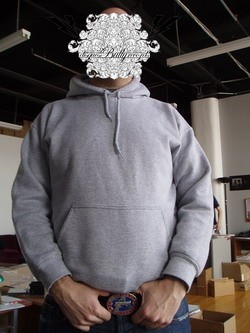 HHC: What's your ambition for Bully? Do you think that the musical orientation will evolve in the future?
HHC: What's your ambition for Bully? Do you think that the musical orientation will evolve in the future?
M: My ambition is to be able to do it for as long as I can. Keep releasing more and more records/projects. I think there will always be a common ground for much of the artists on Bully, but my musical tastes are pretty wide so you never know.
HHC: What are the upcoming projects for you and your label?
M: Over the coming months, we'll have releases by Matt Kelly, Signify, Grandmaster Caz, Joe Beats, Meaty Ogre, Maker, One Speed Bike and more. There's a lot of stuff being worked on and you can expect a single every two weeks or so. Also, I'm releasing the Elektro4 album on vinyl in April and repressing the first Controller 7 EP which should be out in a few weeks. Finally, I've started another label within Bully (since I wasn't busy enough before) called Bully Projects. The first release was the Buddy Peace megamix 7" that we did for Hiphopvinyl.de in Germany. The second release, which is coming out this week, is the OTHER book called 'Fight'. It's a limited edition 88-page book with his linoleum carvings and drawing (1000 copies, hand numbered). It also includes a 15 minute Sixtoo mini-cd. Also up on Bully Projects is the start of a series of limited edition CD. The first one will be by Matt Kelly.
HHC: Thank you Marco... Any last word?
M: I'm tired. Sorry. Thanks to everyone who supported us.
Interview by Pseudzero
April 2006